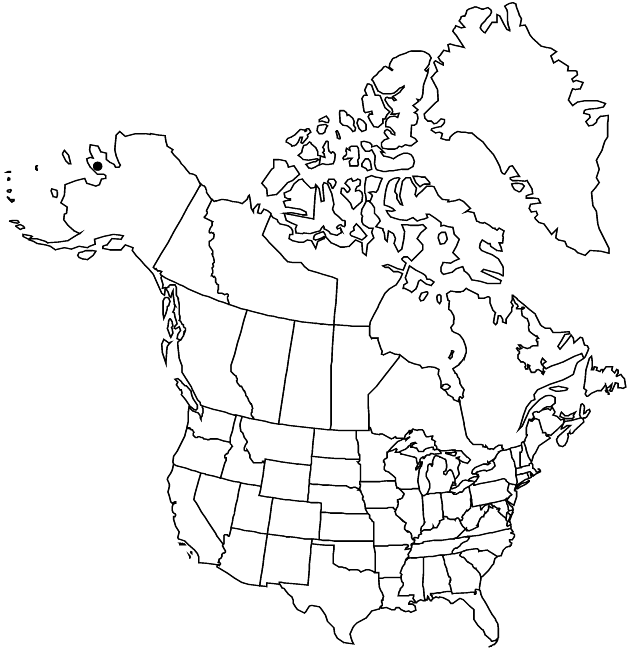Saussurea triangulata
in A. T. von Middendorff, Reise Siber. 1(2,3): 58. 1856.
Plants 30–70 cm; from rhizomes. Stems leafy, simple or with ascending branches. Leaves basal and cauline, well distributed or distally much smaller, proximal and mid with winged petioles to 15 cm, not decurrent on stems, proximal petioles ciliate with multicellular trichomes, distal petioles loosely tomentose when young, glabrescent; blades lanceolate to triangular-ovate, 6–13 cm, bases truncate or subcordate to obtuse or subacute, margins coarsely laciniate-dentate, ciliate with multicellular trichomes, apices acute or acuminate, faces glabrous; mid and distal progressively smaller, becoming sessile, narrower, bases obtuse to acuminate, cauline usually 15 or fewer. Heads 4–11, in congested corymbiform to capitate terminal arrays (peduncles 0–4 cm). Involucres 10–12 mm. Phyllaries in 4–5 series, unequal, appressed throughout, the outer ovate, inner narrowly lanceolate, abaxially dark purplish to nearly black, with or without central green or tan patch, margins loosely arachnoid-tomentose, apices acute to obtuse or rounded, faces glabrate. Receptacles scaly. Florets 10–17; corollas light purple, goblet-shaped, 9–11 mm; tubes 4–5.5 mm, throat 2 mm, lobes 3–3.5 mm; anthers dark purple, 4–5 mm; style branches recurved, 1–1.5 mm. Cypselae ca. 3 mm; pappi brownish, outer bristles very slender, 0.5–4 mm, inner 14–17 bristles stouter, 8–9 mm, all plumose. 2n = 26 (Russia).
Phenology: Flowering Jul–Aug.
Habitat: Slopes, ridges, sometimes in shade
Elevation: 300–400 m
Distribution

Alaska, Russian Far East (Chukotka).
Discussion
In North America Saussurea triangulata is known only from the Waring Mountains of northwestern Alaska, where it was discovered in the late 1990s. I provisionally recognize the Waring Mountains plants as a disjunct population of S. triangulata pending examination of additional material from both Alaskan and Siberian populations.
Selected References
None.